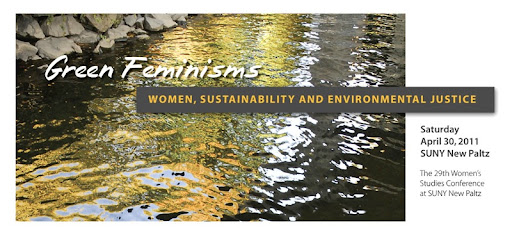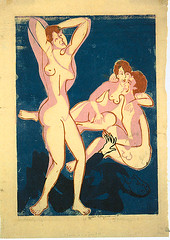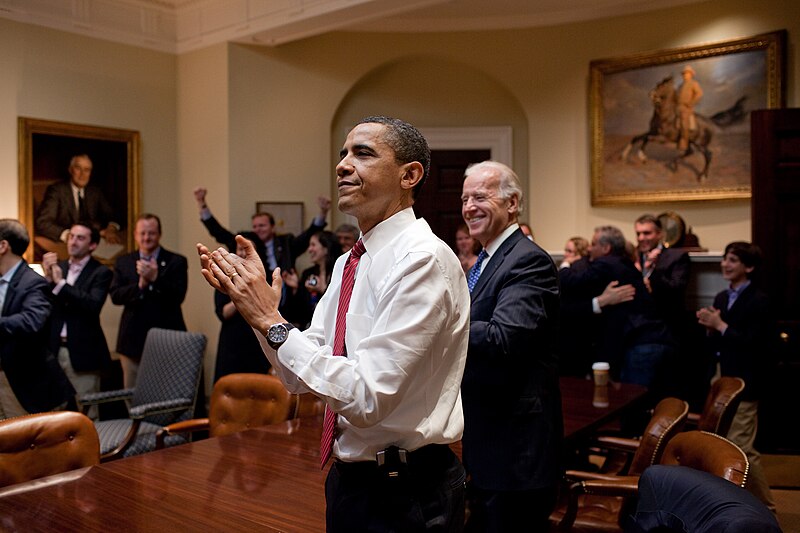Rather than falling into the typical princess/witch or angel/whore binary most films trade in, Hanna gives us a movie rarity–a female protagonist who is strong, smart, brave and decidedly not in need of male rescue.
The film is overtly framed as a dark fairytale, but rather than taking the characteristic romantic turn fairytale-esque films have taken lately (see: Tangled, Twilight, Red Riding Hood), Hanna doesn’t require a princess waiting for her prince. Instead, Hanna is an expert survivalist, able to evade the government operative pursuing her, Marissa (played by Cate Blanchett with an icy Texan twang).
The title character’s name brings to mind other strong female Hanna’s (such as Kathleen Hanna of the grrrrrrl band Le Tigre, or political theorist Hannah Arendt) and, fitting of these strong female role models, Hanna (Saoirse Ronan) is quick-thinking and independent. With a storehouse of encyclopedic knowledge handed down from her father (Erik Bana) and more than enough training to evade the many assassins gunning for her, she is a combination of Sydney Bristow without the glitz, Buffy Summers without the vampires, and Jodie Foster with all her icy-blue-eyed strength.
Like other women populating director Joe Wright’s films (such as Cecilia and Briony Tallis from Atonement), Hanna is neither hyper-sexualized, mentally vacant nor a one-note villain/heroine. As Matt Smith notes in his review, Wright has given us “yet another strong female lead in a film culture that is all too often devoid of them.” Contrasting the film to the “brain dead Sucker Punch,” Smith argues that the film offers “a complex portrait of a young woman.”
While I have not seen Sucker Punch, the trailer indicates a movie saturated in hyper-sexualized female bodies. Framed from a voyeuristic, objectifying male gaze that ogles the female body in action as sexual rather than powerful, and as only holding power via sexuality, Sucker Punch appears to fall in line with other female-driven action movies. Thankfully, by Hanna not sexualizing its protagonist, the film shows that power for women need not reside in bountiful breasts nor be clad in skin-tight body suits (as in Lara Croft: Tomb Raider, Cat Woman, Iron Man 2 and the like). Perhaps Hanna will finally prove that females can successfully helm action films without being booty-bots.
I agree with Smith that Wright has delivered a feminist take on the assassin genre. Even more intriguing, the film avoids romance and passes the Bechdel Test with flying colors. In one evocative scene, Hanna talks with her new friend Sophie (played splendidly by British actress Jessica Barden). Here, the film offers something even rarer than strong female protagonists–an exploration of female friendship and intimacy completely devoid of boy talk or heteronormative romance. The inclusion of a shot of Sophie’s disgruntled and jealous younger brother speaks volumes about why such scenes (and a widespread acknowledgment of female intimacy in general) are so rare: In short, they threaten male defined hetero-patriarchy, revealing that women don’t need nor necessarily desperately desire men in the way so many movies make us believe.
Hanna has been derided as unbelievable and thin on plot (as here), but I beg to differ. What is unbelievable is that movies like this are so rare. Yes, it’s not entirely believable–what action movie is? Yes, it sometimes values action over dialogue or character development–but it is an action movie, after all. But, finally, it delivers a punch very palatable to those who refuse to be suckers for misogynistic female action-hero stereotypes.
*cross-posted here at Ms. Blog


 The
The  This interview originally appeared in the
This interview originally appeared in the 


